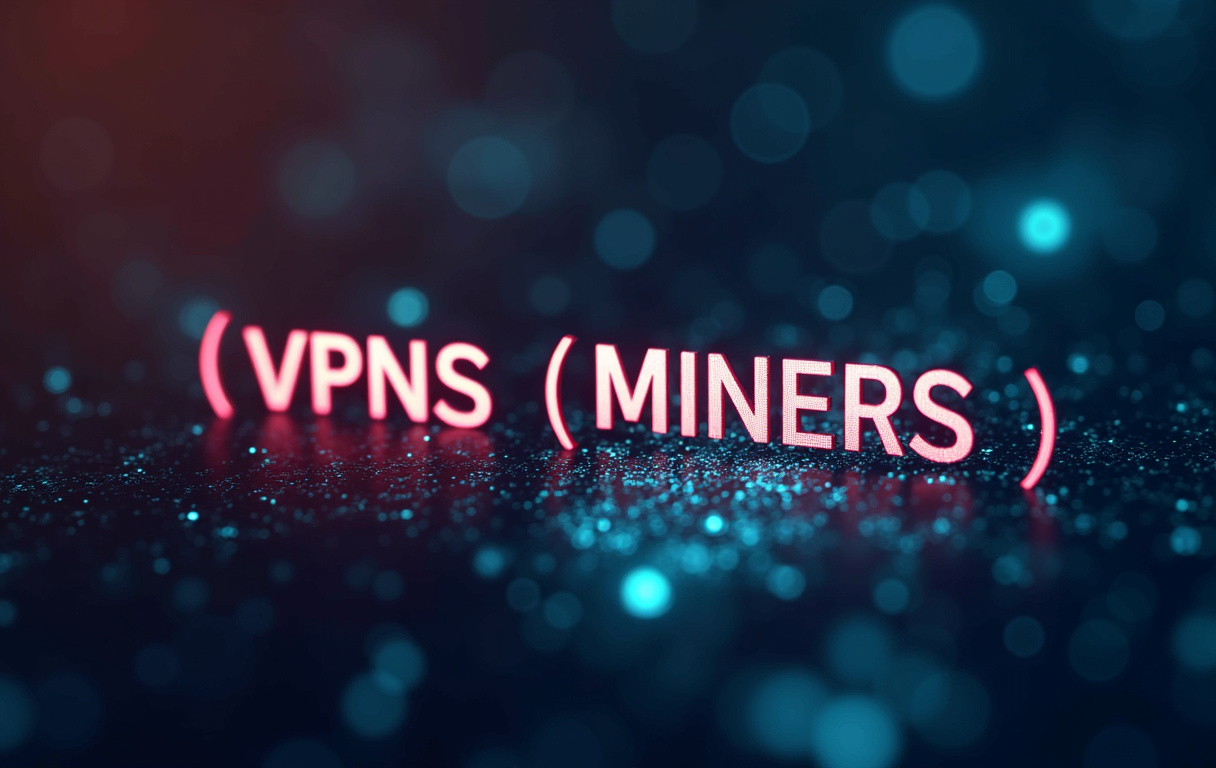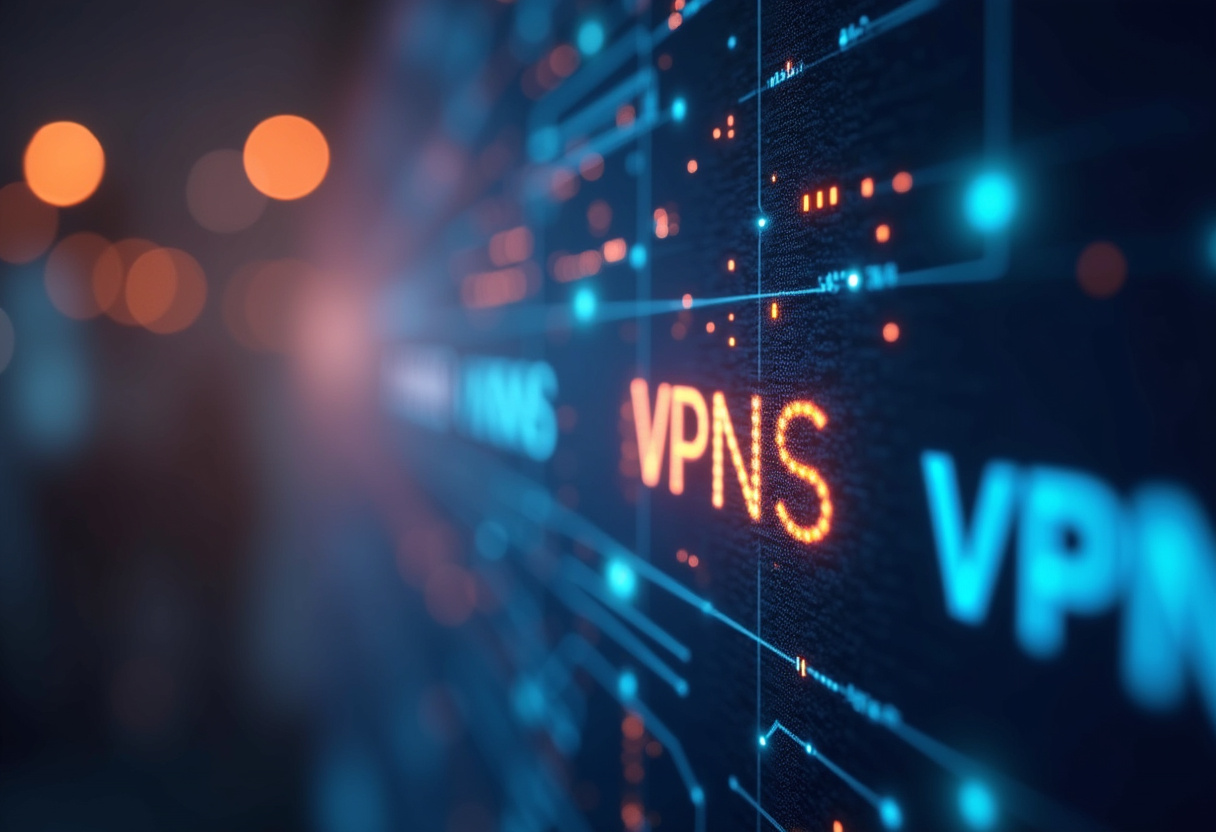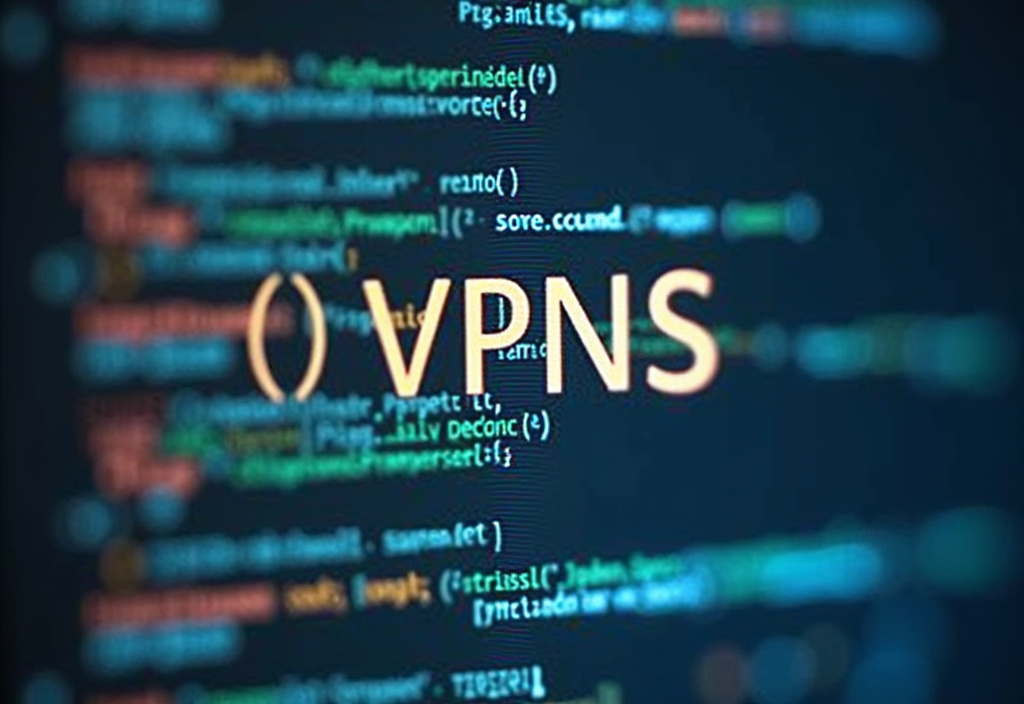VPNs for Digital Currency Miners: Securing Operation Networks

Table of Contents
VPNs for Digital Currency Miners: Securing Operation Networks
In the rapidly evolving digital currency ecosystem, mining stands as the backbone, the validation engine that propels the blockchain forward. It's a process where computational power transforms into digital assets, a modern-day gold rush albeit one powered by algorithms and electricity. However, this digital frontier is not without its perils.
The very nature of mining – its reliance on robust networks, specialized hardware, and constant connectivity – makes it a prime target for malicious actors. Data breaches, DDoS attacks, and network intrusions can cripple operations, leading to financial losses and compromising the integrity of the blockchain itself. This is where the shield of a Virtual Private Network (VPN) becomes indispensable.
This article delves into the crucial role VPNs play in safeguarding the operation networks of digital currency miners. We will explore how these services fortify mining infrastructure, secure sensitive transaction data, and ensure the uninterrupted flow of operations, all while maintaining network integrity in an increasingly hostile digital landscape. Digital currency mining, fundamentally, is a race against complexity.
Miners worldwide compete to solve intricate cryptographic puzzles, the reward being the validation of new blocks on the blockchain and the subsequent acquisition of newly minted cryptocurrency. This competitive environment naturally draws attention, not only from legitimate miners but also from those with nefarious intentions. The high stakes involved, coupled with the technical complexity of mining operations, create a fertile ground for cyber threats.
One of the most common threats is the Distributed Denial-of-Service (DDoS) attack. These attacks flood mining networks with massive amounts of malicious traffic, overwhelming their resources and effectively shutting them down. A successful DDoS attack can cripple a mining operation for hours, or even days, resulting in significant financial losses and missed opportunities.
Beyond DDoS attacks, miners face a constant barrage of malware threats. These malicious software programs can infiltrate mining systems, stealing cryptocurrency, hijacking mining power for unauthorized purposes, or even corrupting the entire mining infrastructure. Phishing attacks, another prevalent threat, target miners through deceptive emails or websites, attempting to trick them into revealing sensitive information such as private keys, login credentials, or access to mining pools.
Data breaches represent an equally serious concern. Mining operations handle vast amounts of sensitive data, including transaction records, wallet information, and private keys. A successful data breach can expose this information to malicious actors, leading to identity theft, financial fraud, and the loss of valuable cryptocurrency assets.
The consequences of these security breaches extend far beyond individual financial losses. Compromised mining operations can undermine the integrity of the blockchain network itself. Malicious actors who gain control of mining nodes can manipulate transactions, introduce fraudulent data, or even attempt to double-spend cryptocurrency, jeopardizing the trust and reliability of the entire digital currency ecosystem.
Given these inherent risks, the need for robust security measures in digital currency mining cannot be overstated. VPNs provide a critical layer of protection by creating a secure and encrypted tunnel for all network traffic associated with mining operations. This tunnel masks the miner's true IP address, making it difficult for attackers to identify and target their systems directly.
The encryption provided by a VPN ensures that sensitive data, such as transaction records and private keys, remains protected from eavesdropping and interception. Furthermore, VPNs can help to mitigate the impact of DDoS attacks by filtering out malicious traffic and distributing it across multiple servers. By routing network traffic through a VPN server, miners can effectively shield their infrastructure from direct attack, preserving their operational capacity and profitability.
The deployment of a "currency mining VPN" is therefore not merely an option, but a necessity for securing operation networks and safeguarding the overall health and stability of the digital currency ecosystem. As digital currencies become increasingly integrated into the mainstream economy, the importance of these security measures will only continue to grow.
Understanding the Cyber Threats Facing Mining Operations
The core functionality of a VPN in the context of digital currency mining hinges on its ability to establish a secure, encrypted tunnel for data transmission. This tunnel acts as a protective conduit, shielding sensitive information from prying eyes as it traverses the internet. Encryption, at its heart, is the process of converting readable data into an unreadable format, rendering it incomprehensible to unauthorized individuals.
A robust VPN employs advanced encryption algorithms, such as Advanced Encryption Standard (AES) with a 256-bit key (AES-256), widely regarded as military-grade encryption, to scramble data effectively. When a digital currency miner connects to a VPN server, all network traffic originating from their mining rig is automatically encrypted. This includes transaction data, private keys, login credentials, and any other sensitive information transmitted over the internet.
The encrypted data is then routed through the VPN server, where it is decrypted and forwarded to its intended destination. The reverse process occurs for incoming traffic; data received by the VPN server is encrypted before being transmitted to the miner's rig, ensuring end-to-end protection. This encryption process inherently secures the transaction data from potential interception, mitigating a primary vector of attack for malicious entities seeking to compromise mining operations.
More than just encryption, a VPN provides essential IP address masking. Every device connected to the internet has a unique IP address that identifies its location and network. This IP address can be used to track online activity and target specific devices for attacks.
A VPN masks the miner's true IP address by replacing it with the IP address of the VPN server. This makes it significantly more difficult for attackers to identify and locate the mining operation, reducing the risk of targeted attacks, such as DDoS attacks or attempts to infiltrate the mining network. By presenting the VPN server's IP address instead of the miner's actual IP, the VPN creates a layer of anonymity, enhancing the overall security posture of the mining operation and preserving network integrity.
Beyond the fundamental benefits of encryption and IP address masking, a VPN offers crucial protection when miners connect via public Wi-Fi networks. These networks, commonly found in coffee shops, airports, and hotels, are notoriously insecure. They often lack proper encryption and are vulnerable to man-in-the-middle attacks, where attackers intercept and manipulate network traffic between the user and the internet.
When a digital currency miner utilizes a public Wi-Fi network without a VPN, all their data is transmitted in plain text, making it easy for attackers to steal sensitive information, including private keys and login credentials. This exposure can lead to immediate financial losses and compromise the entire mining operation. By using a VPN to encrypt network traffic and mask IP addresses, digital currency miners can effectively mitigate these risks, even when connected to untrusted networks.
The VPN creates a secure tunnel that protects their data from interception and manipulation, ensuring that their operations remain secure and confidential, regardless of the underlying network infrastructure. This provides a critical layer of security, particularly for miners who operate remotely or frequently travel. Further bolstering operation network security, robust VPNs often incorporate additional features, such as built-in firewalls and intrusion detection systems.
These security measures enhance network integrity by providing an additional layer of defense against cyber threats. The firewall acts as a gatekeeper, filtering incoming and outgoing network traffic and blocking malicious activity, while the intrusion detection system monitors network traffic for suspicious patterns and alerts administrators to potential security breaches. This multifaceted approach to security ensures a more secure and reliable mining operation that safeguards sensitive transaction data and preserves network integrity.
By integrating these additional security features, the "VPN for finance" effectively fortifies the mining infrastructure against a wide range of cyber threats, supporting the long-term viability and success of the mining endeavor.
How VPNs Fortify Mining Infrastructure and Protect Data
Selecting the appropriate VPN solution for digital currency mining is a decision that demands meticulous consideration. The optimal choice hinges on a number of critical factors, each playing a significant role in ensuring the security, efficiency, and reliability of the mining operation. One of the most paramount aspects to evaluate is the robustness of the VPN's security features.
A reputable VPN should employ strong encryption protocols, ideally AES-256, to safeguard data from unauthorized access. In addition to encryption, a suite of complementary security features is essential. A kill switch, for instance, acts as a fail-safe mechanism, automatically disconnecting the VPN connection if the VPN server unexpectedly drops.
This prevents any unencrypted data from being transmitted, ensuring that sensitive information always remains protected. DNS leak protection is equally vital, preventing DNS queries from being sent to the user's Internet Service Provider (ISP). Leaked DNS queries can reveal the user's location and online activities, compromising their privacy and security.
IP address masking, as previously discussed, is another crucial feature, hiding the user's true IP address and making it significantly more challenging for attackers to track their online activity. Beyond these fundamental security measures, consider VPNs that offer additional layers of protection, such as double VPN or multi-hop connections. These features route network traffic through multiple VPN servers, adding an extra layer of encryption and anonymity, making it exceedingly difficult for attackers to trace the origin of the connection.
A VPN designed for operation network security should also have safeguards against malware. Another critical determinant when selecting a VPN is the speed and reliability of the connection. Digital currency mining demands a stable and reliable internet connection to ensure uninterrupted operation.
A slow or unreliable VPN connection can significantly reduce mining efficiency and profitability. Miners lose potential revenue every moment their rigs are offline. Prioritize VPN providers boasting a large network of servers strategically located across multiple geographies.
A vast server network translates to faster connection speeds and reduced latency, as miners can connect to servers closer to their physical location or choose servers in regions with less network congestion. Furthermore, a larger server network provides greater redundancy, minimizing the risk of downtime due to server outages. Look for VPN providers that invest in high-bandwidth infrastructure and actively monitor their network to ensure optimal performance.
Conduct thorough speed tests using various speed test tools to gauge the performance of different VPN servers. Also, check user reviews to see customer perceptions of network speed and reliability. The ideal "currency mining VPN" should provide negligible speed degradation.
The VPN provider's privacy policy is an equally crucial consideration. A VPN is meant to enhance privacy, but it can only do so if the provider itself respects user privacy. Scrutinize the VPN provider's privacy policy with extreme care, paying close attention to their data logging practices.
A reputable VPN provider should adhere to a strict "no-logs" policy, meaning that they do not collect or store any information about their users' online activities. This includes browsing history, IP addresses, connection timestamps, and bandwidth usage. A no-logs policy ensures that even if the VPN provider is compelled by law enforcement to hand over user data, they would have nothing to provide.
Be wary of VPN providers that claim to have a no-logs policy but collect connection logs or usage data. These logs can potentially be used to identify users and track their online activities, undermining their privacy. To ensure accountability, opt for VPN providers that have been independently audited by reputable third-party security firms.
These audits verify the VPN provider's claims regarding security and privacy practices, providing an additional layer of assurance. Transparency is key; a trustworthy VPN provider will be upfront about their data logging practices and readily provide information about their security infrastructure and procedures. In the context of transaction data and ensuring VPN for finance protocols, a strict adherence to consumer privacy is more than just a preference, it is a necessity.
VPNs for Services: Enhancing Security for Online Platforms with Subscription-Based Offerings
Beyond the technical specifications and policy considerations, the practical application of a VPN within a digital currency mining operation warrants careful planning and execution. Simply subscribing to a VPN service is not enough; a well-defined implementation strategy is crucial to maximize its effectiveness and ensure seamless integration with existing mining infrastructure. The initial step involves identifying the specific security threats that the mining operation faces.
This risk assessment should consider factors such as the location of the mining facility, the network infrastructure, the types of cryptocurrencies being mined, and the overall security posture of the operation. Based on this assessment, miners can tailor their VPN configuration to address the most pressing threats. For instance, if the mining operation is located in a region with strict internet censorship, a VPN with obfuscation features can help to bypass these restrictions and maintain access to mining pools.
If the mining operation is frequently targeted by DDoS attacks, selecting a VPN provider with dedicated DDoS protection can mitigate the impact of these attacks. Once the specific security goals have been defined, the next step is to configure the VPN on all mining devices. This may involve installing VPN client software on each mining rig or configuring the VPN directly on the network router.
The optimal approach depends on the size and complexity of the mining operation, as well as the technical expertise of the miners. For smaller operations, installing VPN client software on each mining rig may be the simplest and most cost-effective solution. For larger operations, configuring the VPN on the router can provide a more centralized and efficient approach to managing network security.
When configuring the VPN, it is essential to select the appropriate encryption protocol and server location. AES-256 encryption should be the default choice for maximum security. The server location should be chosen based on factors such as proximity to mining pools, network latency, and the desired level of anonymity.
It is also recommended to enable the kill switch and DNS leak protection features to prevent any potential data leaks. Regular monitoring of the VPN connection is crucial to ensure that it is functioning properly and providing the intended level of security. Miners should monitor their network traffic to identify any suspicious activity and verify that their IP address is being masked correctly.
They should also regularly check the VPN server status to ensure that it is online and responsive. In addition to configuring the VPN software, implementing strong password policies and multi-factor authentication can further bolster the security of the mining operation. These measures can help to prevent unauthorized access to mining accounts and protect against phishing attacks.
Ongoing security training for miners is also essential to raise awareness of potential threats and ensure that they are following best practices for online security. Integrating a VPN with existing security measures, such as firewalls and intrusion detection systems, is crucial for creating a layered security approach. The VPN should be configured to work in conjunction with these other security tools to provide comprehensive protection against a wide range of threats.
For example, the firewall can be used to filter incoming and outgoing network traffic, while the intrusion detection system can monitor network activity for suspicious patterns. To fully protect network integrity, a VPN should be compatible with all operating systems that run mining software being used. The VPN adds an extra layer of protection, securing the entire operation network from unauthorized entities, which can be very beneficial when maintaining transaction data safely.
By integrating a VPN with these other security measures, miners can create a robust and resilient security posture that protects their operations from even the most sophisticated attacks. This holistic strategy is central to leveraging "VPN for finance". Regular security audits should be conducted to identify any potential vulnerabilities and ensure that the security measures are effective.
These audits should be performed by independent security experts who can provide unbiased assessments of the mining operation's security posture. Based on the findings of these audits, miners can make necessary adjustments to their security measures and improve their overall security posture.
The landscape of digital currency mining is in constant flux, driven by technological advancements, regulatory changes, and the ever-evolving threat landscape. To maintain a robust security posture, digital currency miners must adopt a proactive and adaptive approach to VPN implementation. This involves staying informed about the latest security threats, regularly updating VPN software, and continuously evaluating the effectiveness of existing security measures.
One of the most critical aspects of adapting to the evolving threat landscape is staying informed about the latest security vulnerabilities and exploits. Miners should subscribe to security news feeds, follow security experts on social media, and participate in online security forums to stay abreast of the latest threats. They should also regularly scan their systems for vulnerabilities using vulnerability scanning tools and promptly patch any identified vulnerabilities.
VPN providers also play a crucial role in keeping their users protected from emerging threats. Reputable VPN providers regularly update their software to address newly discovered vulnerabilities and improve their security features. Miners should ensure that they are using the latest version of their VPN software to benefit from these security enhancements.
They should also monitor their VPN provider's website and social media channels for announcements about security updates and advisories. Beyond staying informed about emerging threats and updating VPN software, miners should also continuously evaluate the effectiveness of their existing security measures. This involves regularly testing their VPN connection to ensure that it is functioning properly and providing the intended level of security.
Miners can use online tools to check their IP address and DNS settings to verify that their VPN is masking their identity correctly. They should also conduct penetration testing to simulate real-world attacks and identify any weaknesses in their security posture. The results of these tests should be used to make necessary adjustments to their security measures and improve their overall security posture.
Furthermore, miners should adapt their VPN configuration. This is to address any new threat vectors. For instance, if a new type of DDoS attack emerges, miners may need to adjust their VPN server location or enable additional DDoS protection features.
Looking ahead, the role of VPNs in securing digital currency mining operations is likely to become even more critical. As digital currencies become more mainstream, they will increasingly be targeted by sophisticated cybercriminals and state-sponsored actors. These attackers will leverage advanced techniques, such as artificial intelligence and machine learning, to bypass traditional security measures.
To counter these emerging threats, VPN providers will need to innovate and develop new security features. This may include incorporating AI-powered threat detection systems, blockchain-based authentication mechanisms, and quantum-resistant encryption algorithms. Furthermore, as digital currency mining becomes more decentralized and distributed, VPNs will need to adapt to support these emerging architectures.
This may involve developing VPN solutions that can be deployed on edge computing devices or integrated with decentralized VPN networks. Ultimately, the success of digital currency mining will depend on the ability of miners to secure their operations and maintain the integrity of the blockchain network. In this endeavor, ensuring operation network security is not just about profit maximization, but a way to uphold principles of blockchain.
A robust VPN implementation is a critical component of this security strategy, providing a vital layer of protection against a wide range of threats. As the threat landscape continues to evolve, miners who prioritize security and proactively adapt their VPN implementation will be best positioned to thrive in the digital currency ecosystem. Ensuring that a "currency mining VPN" prioritizes transaction data protection will not only improve individual outcomes, but contribute to building trust in the financial system.
Stay Updated
Get the latest VPN news, tips, and exclusive deals to your inbox.




